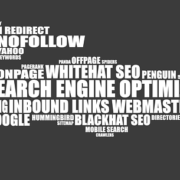Is SEO Dead?
Yesterday, while scrolling through my Facebook newsfeed I saw this headline:
“The Top 4 Reasons SEO Is Dead”
It’s not the first time a major marketing strategy has been deemed “dead.”
Some people have touted that email marketing is dead (it’s not) andtelevision is dead (it’s not either.)
So why do so many people keep suggesting that popular, effective marketing tactics are dead? Probably because it’s been beaten, pounded, kicked, and dug into the dirt by so many “black hat,” poor attempts that it’s diluted the real reason it existed in the first place.
Television advertising began to give viewers information about products or services they might need. Now, with more people DVR’ing shows and skipping through commercials, many marketers think it’s a weak strategy. That’s only the case when it’s done poorly. When it’s done right (for example, advertising during hot events, such as the Superbowl), it’s highly effective. Budweiser knows a thing or two about that. (They admittedly turned me into a blubbering idiot at my Superbowl party two years in a row – and I’m hoping we can keep that tradition going because I love their use of animals to promote beer. Call me crazy, but I’m a sucker for that stuff!)
Email marketing started as a way to turn direct mail digital. It wasn’t until spammers started overwhelming the space that people became more protective of their inboxes. But that protective nature doesn’t signal the death of an entire marketing channel. In fact, people marketed through email spend 138% more than people who don’t receive email offers, according to Convince and Convert.
So yesterday, when I read the headline, I rolled my eyes. Not again!
Is SEO dead? The link bait worked and I clicked on the article. I had to know what these four reasons were. Why was the CEO of DitigizeIQ, Tim Burd, promoting another death in the marketing world?
Here’s his reasoning and my response.
Table of Contents
1. Organic reach is getting harder.
Burd’s first point is that organic reach is down. I’d suggest that it’s just gotten a little bit harder and requires more effort.
Organic search results are those that are not paid for. They’re what marketers work so hard to claim through SEO strategies and tactics.
Marketers cannot buy themselves into top positions either. Burd acknowledges that too. Consumers have become so savvy with search engines, they know when a listing is sponsored or paid for, which immediately plants a level of distrust in their minds. It doesn’t matter whether that distrust is founded or not, it’s there.
No doubt, organic reach has gotten harder but it’s not dead. To rank high, businesses need to get inside the mind’s of their consumers. Searchers are smart these days. They don’t usually search for one word at a time and expect a highly relevant result. Now, they’re searching for long-tail keywords (about five to seven words in length). Targeting those keywords requires a little more effort but when done right, it can be highly effective.
2. People rely on their friend’s opinions.
Burd suggests that people want what their friends have. Instead of relying on Google for information, they look to their friends for help and validation.
This isn’t new, is it? Consumers have always valued their friends opinions. First adapters have always wanted to be the first into the market. The early and late majorities have always followed suit after watching what their friends experienced first. This is basic business school info.
Burd thinks that Google was a little too late to catching onto this trend, so he believes that Facebook has the upper hand here. But before you ditch all your SEO efforts and take to Facebook to tap into conversations about your product (which you should be doing anyway) think about what happens once a consumer’s friend has recommended your business. Chances are, they’ll type your name and a keyword into the search engines or into Yelp. If you want to get found, you need to be sure you rank high for the terms they’re searching for – and that requires SEO.
3. Social networks are dominating the market.
I’m going to give Burd credit here. Yes, social networks such as Facebook, Yelp, and Twitter are stealing market share. Yes, people are searching more on those sites rather than Google, Yahoo, or Bing. Yes, businesses need to understand this new consumer behavior and adapt.
This shift in consumer behavior actually helps businesses and their SEO.
Now, by marketing across channels, companies get backlinks from high ranking sites (which is an SEO boost), traffic from these higher ranking sites, and more qualified leads. That changes the way companies can (and should) approach website copywriting. Now more than ever, appealing to the masses won’t work. Businesses need to talk specifically to their buyer to get their message across. A byproduct of that messaging is better SEO, but it’s not the main focus.

4. Putting a face to a name matters.
This ties into point number two – people rely on their friends for information over a robot. That part makes sense, but it doesn’t signal the end of a marketing strategy.
Social proof is more important than ever before. Just because people are arriving on your website from various channels (search engines still included) doesn’t mean that you should stop trying to rank high. Being in the top 10 search results on Google will still bring you traffic. Incorporating social proof in your copywriting and website content will only serve as a way to push that traffic to the next stage of the buying process.
Takeaways
Burd himself says that “search engines, specifically Google, will likely always be the place we go to get the information we need.” He knows that SEO isn’t dead. He knows that it’s still important for businesses to rank high in search results. However, he also knows that more businesses need to be aware of the cross channel marketing that needs to happen online.
To thrive in today’s market, you need to have a better idea of what your customers are doing online. Understanding the buyer’s journey, answering objections up front, and using multiple digital channels to reach customers will only serve as a way to bolster your online presence.
What do you think? Is SEO still something you’ll invest in?
About the author: Kimberly Crossland

“I’m Kimberly Crossland, owner, writer, and operator of The Savvy Copywriter, LLC. My full time job as a copywriter and content marketer is to save savvy entrepreneurs without a clue (or interest) in the Internet from destroying their business with a terrible or nonexistent website.
Fun Bits About Me
I have an unnatural obsession with the power of words.
You don’t want to talk to me first thing in the morning if I haven’t had a cup of coffee.
I speak two languages: English and Danish.
My other job titles include wife and dog-walker.
It doesn’t take a lot of convincing to get me to want to travel somewhere new and fun.
I follow the paleo diet, but I LOVE chocolate, cookies, and wine.”



